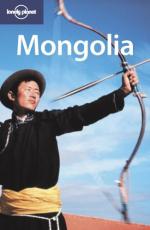|
This section contains 5,265 words (approx. 18 pages at 300 words per page) |

|
The Mongol family was efficiently organized to meet the rigorous demands imposed by the harsh economic realities of their nomadic existence. Everyone had to pitch in daily to guarantee the necessities of life. From the earliest age possible both boys and girls learned the necessary skills of successful nomads. As adults, even into old age, men and women shared equally in the physically punishing—and dangerous—labor required by herding and hunting.
This equality was reinforced during Genghis Khan's military campaigns. If the men were occupied with fighting, the women, children, and able-bodied elderly had to shoulder all the responsibilities the menfolk normally performed during peacetime. The result was a remarkably homogenous family unit. Children assumed adult responsibilities much sooner than they did in nonnomadic societies and women enjoyed far greater influence in the decisions that affected family life than...
|
This section contains 5,265 words (approx. 18 pages at 300 words per page) |

|




